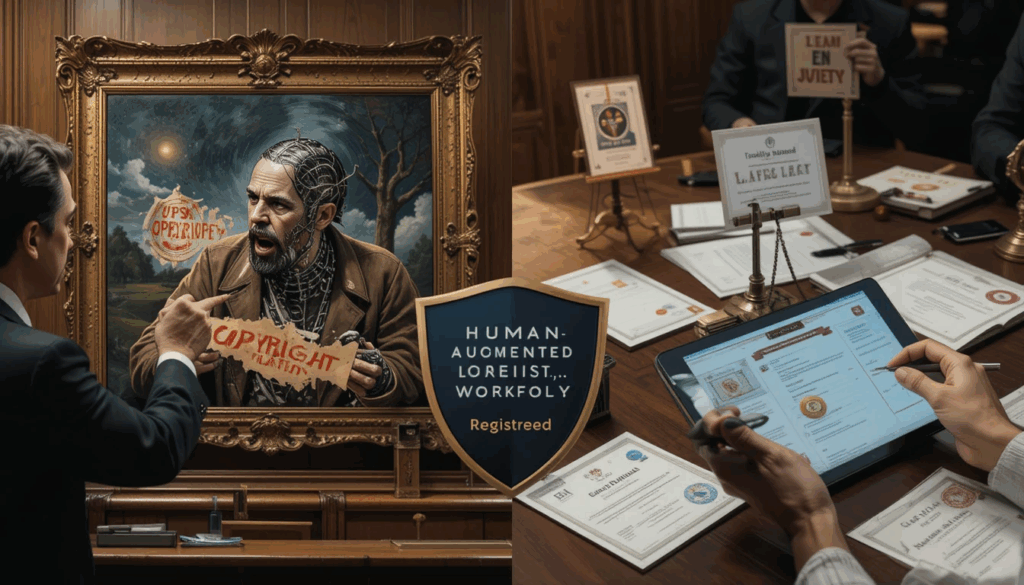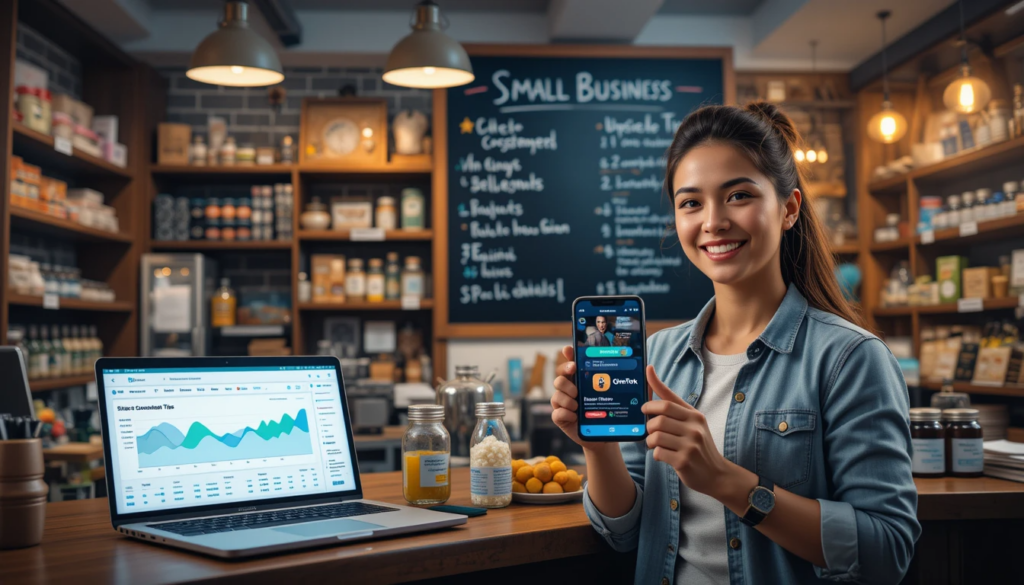The synthetic media copyright wars have exploded into a legal minefield for businesses in 2025. As AI-generated content floods digital spaces, landmark cases like Getty Images v. Stability AI have left marketing agencies and creators in chaos: Who owns AI creations? Can you copyright Midjourney artwork? A single Instagram post using synthetic media could trigger six-figure lawsuits – with 73% of copyright claims now targeting AI-assisted work (WIPO).
Why Copyright Chaos Reigns
-
U.S. Copyright Office denies protection for purely AI-generated work (2023 Théâtre D’opéra Spatial ruling)
-
Content creators sue when AI outputs resemble their style
-
Platforms like Instagram now require #AIgenerated tags to avoid “imposter content” takedowns
For small businesses, the risks are brutal:
⚠️ A bakery using AI-generated food photos faced $30K damages for “style infringement”
⚠️ A marketing agency’s client campaign was scrubbed when AI vocals matched a singer’s timbre
3 Battle-Tested Protection Strategies
1. Human-Augmented Workflows (Copyright Shield)
Always add substantive human creation:
-
Edit AI outputs in Photoshop (>30% modification)
-
Composite multiple AI generations into new works
-
Record “human touch” documentation for every asset
Legal Advantage: Meets USCO’s “meaningful human authorship” standard
2. Strategic Prompt Engineering
-
Avoid “in the style of [Artist]” prompts (proven infringement in Anderson v. DeviantArt)
-
Use style descriptors instead (“vibrant pop-art” vs. “Warhol-style”)
-
Maintain prompt logs as legal evidence
3. License Everything
| Content Type | Safe Solution |
|---|---|
| AI images | Adobe Firefly (enterprise license covers indemnification) |
| AI text | GPT-4 with commercial API terms |
| AI music | Soundful’s royalty-free AI tracks |
Case Study: Agency Survival Tactics
When a viral AI campaign drew legal threats:
1️⃣ Remixed disputed visuals with original photography
2️⃣ Licensed core elements through Shutterstock’s AI indemnification program
3️⃣ Registered final “human-curated” version with USCO
Result: Settled for $5K vs. potential $150K lawsuit
Critical 2025 Safeguards
-
Watermarking: Use tools like Glaze or PhotoGuard to protect original works from AI scraping
-
Disclosure: Clearly label all synthetic media (California’s A.B. 302 compliance)
-
Audit Trails: Archive prompt histories and editing timestamps
The Silver Lining
Forward-thinking creators are turning the synthetic media copyright wars into opportunity:
✅ 45% premium for “copyright-guaranteed” AI content services
✅ New niches in prompt licensing marketplaces
✅ Rising demand for “hybrid human-AI” legal consultants
Bottom Line
The synthetic media copyright wars won’t end soon – but savvy businesses can navigate them. By implementing human-centric workflows, meticulous documentation, and strategic licensing, you can harness AI’s power without courting legal disaster.



